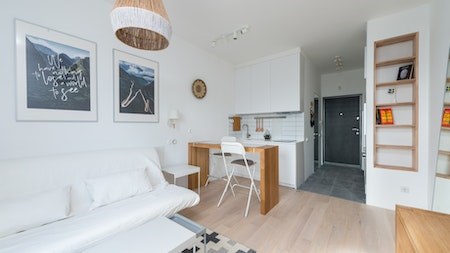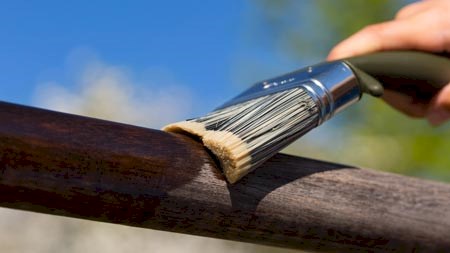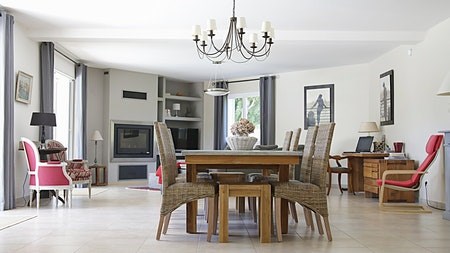How long do you expect your house to last? Research estimates show that a modern residential building has a life expectancy of (on average) 60-75 years. However, there really can be no accurate measure because the components that comprise the overall unit can be repaired, replaced, or renovated. This is why, in many cases, the age of a home is not necessarily as relevant as is the condition of its major components.
How long can a home last and which factors are in this regard?
A house can last for more than a hundred years, but it is likely that without major upgrades, it will no longer be functional, and aspects such as electrical wiring and plumbing would not be compliant. Even so, such homes take on an old-world charm or become retro-desirable, particularly if the siting of the property has some attractive architectural features or panoramic views and well-established gardens.
However, abandoning a home long enough or leaving it unoccupied for months on end will result in accelerated structural decline, such as mould or rot setting in, insect colony occupation, and climate damage. Interestingly, and this applies whether a house is 100 or 30 years old when occupied, it is not the number of occupants that causes hectic wear and tear but rather the age and type of occupants. For example, young families are harder on an interior vs more gentle senior residents (unless they are wheelchair dependent).
As time passes, you expect your home to be worth more than its purchase price, but a lot of that value will still depend on the overall condition of its features. Unless you do a home inspection every month or so to check on the condition of those and the appliances that require maintenance or replacement, you may not realise how much value is being lost. Over time, this can have a negative financial impact.
If you want to prepare ahead and budget for component or fixed feature replacement, repair or maintenance, this generic but handy guide will give you some idea of the life expectancy of many of the standard fittings/features in a home, as well as some of the appliances you use on a regular basis.
It does not account for any particular warranty or guarantee supplied by any manufacturer or installer. Neither does it account for things like tap washer or filter replacements, poor construction, or negligence. All quoted items' lifespans are based on mid-range quality fitments or choices. This list is also based on the assumption that regular maintenance is being undertaken, that there are no insect infestations, rising damp, etc., but it does account for usual regular wear and tear.
Exterior
- Swimming pool surfacing: vinyl - 20-plus years; concrete - 10 years; fibreglass 30-plus years.
- Swimming pool pump motors: 8-10 years.
- Swimming pool cleaners: up to 15 years.
- Swimming pool heater: 10 years.
- Jacuzzi/Hot tub pumps and heaters: 7-10 years.
- Jacuzzi/Hot Tub (tub itself): 5-20 years.
- Window frames: 20-50 years.
- Window glass putty: 5-20 years (dependent on sun exposure).
- Gutters: 20-50 years.
- Roof tiles: clay tiles between 50-60 years.
- Roof trusses: 100-plus years.
- Thatching: 15-40 years.
- Exterior paint: 5-15 years.
- Driveway: asphalt - 25-30 years; gravel 4-10 years; pavers 35 years.
- Solar panels: 25-plus years.
- Generator (to power medium-sized house): 12 years.
- Fixed exterior lighting: 35 years.
- Wood deck: 10-15 years.
- Patio concrete: 30-50 years.
- Paths and paving: 25-45 years.
- Built-in steel braai/barbeque: 10-15 years.
- Bar fridge: 6-14 years.
- Sprinkler systems: 20 years.
- Fencing: wood - 20 years; precast - up to 100 years; brick - 150-plus years.
- Exterior stairs (concrete, steel): 50-80 years.
General
- DB Board: 20 years.
- Electrical wiring: 60-70 years (warnings in terms of compliance).
- Surge protector: 2-5 years.
- Plumbing components: galvanised steel, cast iron and brass 80-100 years; PVC 20-25 years.
- Tankless water heaters: 20 years; electric or gas - 10 years.
- Geyser: 8-10 years.
- Air-conditioners: 15-20 years.
- Ceiling fans: 10 years.
- Ceiling boards (gypsum): 50 years plus.
- Interior stairs: 100-plus years.
- Skylights: 15 years.
- Fixed interior lighting: 45 years.
- Home security system: 20 years.
- Security gates: 15-20 years.
- Smoke detectors: 10 years.
- Garage doors and its remote controller: 15-30 years.
- Wall switches: 35 years.
- Electric sockets: 15-25 years.
- Wood or stone flooring: 100-plus years.
- Laminated flooring: 15-25 years.
- Carpeting: up to 5-15 years.
- Doors: interior 20-30 years; exterior 30-100 years.
- Sliding doors: 20-30 years.
- Fitted blinds: 7-8 years.
- Door handles: 7-10 years.
- Key locks: up to 30 years.
Kitchen
- Cabinets: 30-50 years.
- Countertops: concrete and marble - 25-50 years; laminate - 20-30 years; granite -100 years; resin 15 years; tile - 50 years; butcher block 50-plus years.
- Sink: stainless steel 25-30 years; porcelain 25-30 years; enamel 5-10 years.
- Electric oven/stove top: up to 15 years.
- Gas range: 18 years.
- Microwave: 8 years.
- Fridge: 10-20 years.
- Freezer: 16 years.
- Tumble dryer - 10-15 years.
- Washing machine - 10-13 years.
- Dishwasher - 10 years.
- Taps - 15-20 years.
Bathroom & Bedroom
- Cabinets: 30-60 years.
- Toilet: 50-100 years.
- Toilet tank components: 7 years.
- Shower doors: 20-30-plus years.
- Shower head: 15-20 years.
- Bath: up to 30 years.
- Enamel sink: 5-10 years.
- Taps: 15-20 years.
- Fitted cupboards: 50 years.
Living rooms
- Television: 100 000 hours or 10 years.
- WiFi router: 3-5 years.
- Music systems: 3 years plus.
- Decoders: as per manufacturer but on average up to 5 years with software updates.
The items listed above can assist you in having a better overview of the property's lifespan.
Writer : Kerry Dimmer




